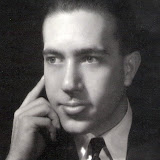| UNITED NATIONS | A |
| ||
| A/RES/181(II) 29 November 1947 | ||
Resolution 181 (II). Future government of Palestine
A
A
The General Assembly,
Having met in special session at the request of the mandatory Power to constitute and instruct a special committee to prepare for the consideration of the question of the future government of Palestine at the second regular session;
Having constituted a Special Committee and instructed it to investigate all questions and issues relevant to the problem of Palestine, and to prepare proposals for the solution of the problem, and
Having received and examined the report of the Special Committee (document A/364) 1/ including a number of unanimous recommendations and a plan of partition with economic union approved by the majority of the Special Committee,
Considers that the present situation in Palestine is one which is likely to impair the general welfare and friendly relations among nations;
Takes note of the declaration by the mandatory Power that it plans to complete its evacuation of Palestine by 1 August 1948;
Recommends to the United Kingdom, as the mandatory Power for Palestine, and to all other Members of the United Nations the adoption and implementation, with regard to the future government of Palestine, of the Plan of Partition with Economic Union set out below;
Requests that
(a) The Security Council take the necessary measures as provided for in the plan for its implementation;
(b) The Security Council consider, if circumstances during the transitional period require such consideration, whether the situation in Palestine constitutes a threat to the peace. If it decides that such a threat exists, and in order to maintain international peace and security, the Security Council should supplement the authorization of the General Assembly by taking measures, under Articles 39 and 41 of the Charter, to empower the United Nations Commission, as provided in this resolution, to exercise in Palestine the functions which are assigned to it by this resolution;
(c) The Security Council determine as a threat to the peace, breach of the peace or act of aggression, in accordance with Article 39 of the Charter, any attempt to alter by force the settlement envisaged by this resolution;
(d) The Trusteeship Council be informed of the responsibilities envisaged for it in this plan;
Calls upon the inhabitants of Palestine to take such steps as may be necessary on their part to put this plan into effect;
Appeals to all Governments and all peoples to refrain from taking action which might hamper or delay the carrying out of these recommendations, and
Authorizes the Secretary-General to reimburse travel and subsistence expenses of the members of the Commission referred to in Part I, Section B, paragraph 1 below, on such basis and in such form as he may determine most appropriate in the circumstances, and to provide the Commission with the necessary staff to assist in carrying out the functions assigned to the Commission by the General Assembly.










